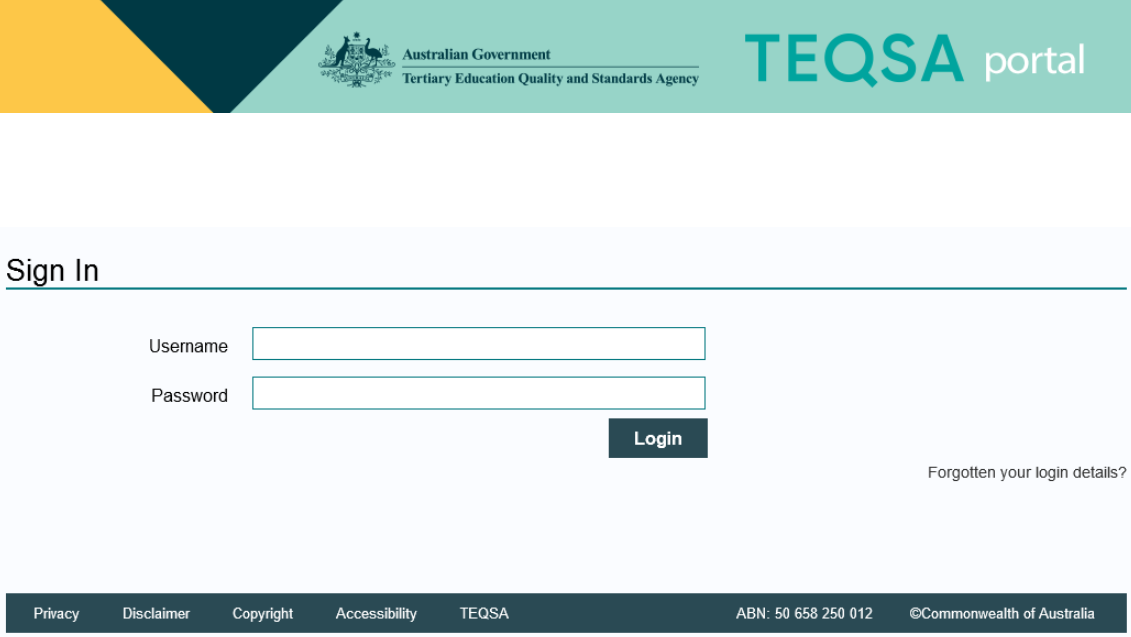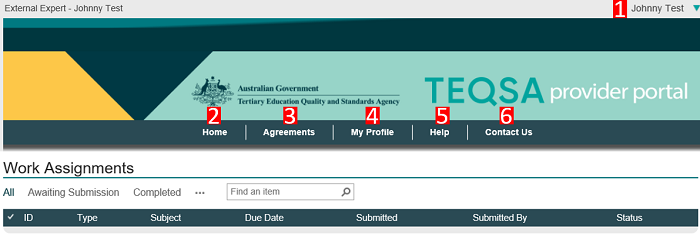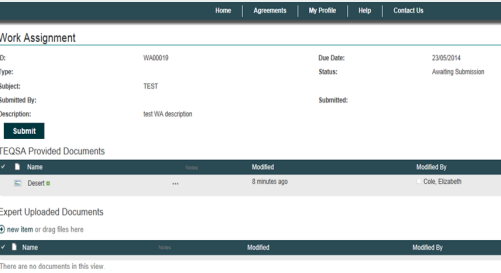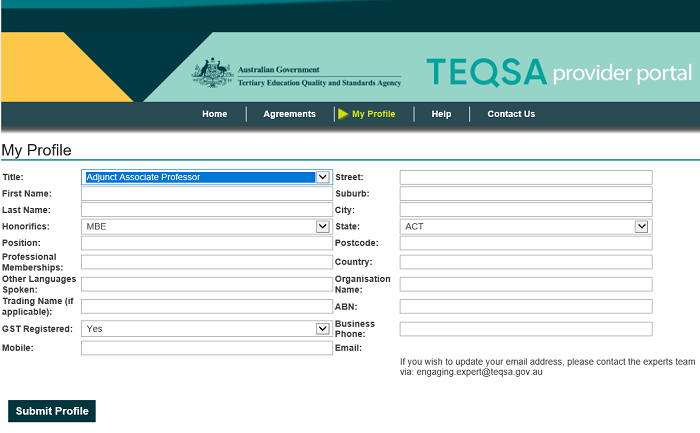Changes to mode of delivery
1. How is TEQSA supporting providers with changes to mode of delivery?
TEQSA is supporting providers to be flexible and adaptive in how they deliver higher education and support students, both in Australia and offshore, to continue their study. We are not setting out particular approaches that providers should adopt. Providers are best placed to consider their individual context and determine the appropriate delivery solutions.
TEQSA appreciates providers have had to act swiftly to adapt to the current challenges and that they will be at different stages in terms of their online preparedness. We encourage providers to focus on ensuring that learning outcomes for courses are maintained, staff are adequately resourced to teach online, and that student wellbeing and safety continues to be a priority. This focus should be underpinned by clear, open, and accessible communication between students, teaching staff, and support staff.
So long as providers are able to demonstrate that they have taken into account relevant considerations and made a reasonable decision, in the best interests of students and the quality of learning, TEQSA is unlikely to draw negative conclusions about actions taken by a provider to change the mode of delivery to respond to COVID-19. It is important that providers report material changes and keep adequate records of decisions and reasons for their decisions.
2. Moving to online delivery
As a result of COVID-19 and in the interests of staff and student welfare, many providers are shifting to online delivery in short timeframes. There are a number of useful resources readily available on the topic of online learning and delivery. TEQSA has worked with peak bodies and experts to share a collection of resources that may assist providers. These online learning good practice resources are published on our website.
We also encourage providers to engage with their peak bodies as well as other providers as appropriate. There are many providers in the sector who have extensive experience in delivering online learning and they may be willing to share their expertise. For providers who don’t have online learning expertise within their own organisation, we encourage these providers to consider engaging the professional expertise required to assist them.
3. Online delivery and the HES Framework
To assist providers, we have identified some key considerations, linked to obligations under the Higher Education Standards Framework (Threshold Standards) 2015 (HES Framework) that providers should remain mindful of as they shift to online delivery.
The list of key considerations below do not reflect the full range of HES Framework and the National Code of Practice for Providers of Education and Training to Overseas Students 2018 (National Code 2018) requirements that relate to online delivery. Providers should ensure that there is appropriate governance in place to support online delivery and document key decisions and actions. These records are important to demonstrate that the provider has acted reasonably in the circumstances.
It is also important to recognise that there are immediate, upfront considerations to be addressed whereas responses to other considerations may be addressed over time.
1. Support for students in the new learning environment
A number of Standards are focussed on ensuring students are supported during their study. This includes Standards under Section 1.3 (Orientation and Progression), Section 2.3 (Wellbeing and Safety) and Section 3.3 (Learning Resources and Educational Support).
Key considerations include:
- ensuring students have access to the resources they need to engage in online learning, including identifying and addressing barriers to accessing technology
- ensuring students are offered alternatives where there is significant change or disruption to delivery of courses, including processes for fee reduction, refunds or deferral
- checking existing contractual arrangements with students about mode of delivery, which may involve seeking and incorporating the views of students
- what additional learning, academic and personal support may be required in the online context. This includes ensuring students have the opportunity to contact and interact with academic and support staff and that student support is adequately resourced
- how student engagement will be maintained throughout the delivery of the course, including peer-to-peer interaction, staff to student interaction, and student support. This includes mitigating risks associated with social isolation.
2. Support services and training for teaching staff
It is a requirement under Standard 3.2.3 that teaching staff are equipped for their role. A move to online delivery may require nuanced approaches to course content, delivery and student engagement, noting that what works well for one course discipline may not be suitable for another. Staff are likely to require enhanced support and training.
Key considerations include:
- what support services and training for staff are required for the changed delivery mode to ensure staff have the appropriate qualifications, knowledge and skills required to support the achievement of learning outcomes
- ensuring teaching staff have access to the tools to deliver online
- ensuring teaching staff have a common baseline for learning and teaching success
- how peer-to-peer interaction among teaching staff and support to teaching staff will be maintained.
3. Maintaining quality of education and learning outcomes
The quality of delivery and learning outcomes must be maintained to high standards irrespective of the mode of delivery. This focus on quality and learning outcomes is covered by a number of Standards, including Standard 3.1.4 which requires that each course of study is designed to enable achievement of expected learning outcomes regardless of a student’s place of study or the mode of delivery. Further, Section 1.4 deals with Learning Outcomes and Assessment and Section 5.2 deals with Academic and Research Integrity, which need to be applied in an online delivery context.
Key considerations include:
- assurance on how students will be able to meet the learning outcomes, and effective monitoring of student progression and the learning outcomes
- how student engagement and interaction will be monitored to ensure students are regularly logging in and undertaking the required learning
- quality assurance mechanisms tailored for the changed delivery mode, including how to review, measure and improve outcomes
- how academic integrity will be monitored and maintained. This includes ensuring risks that are particularly relevant in an online context are adequately mitigated e.g. academic misconduct, including cheating and plagiarism
- ensuring exams and assessments are fit for purpose, clearly communicated, effectively moderated, and allow students to demonstrate learning outcomes
- ensuring there are processes in place to maintain academic integrity of assessments, including proctoring/supervision of tests and exams
- how professional accreditation will be maintained (where applicable).
4. Other governance arrangements to support online delivery
The academic and governing bodies have ultimate responsibility for the provider’s operations to ensure that student interests and the quality of learning remain a priority with any shifts to new modes of delivery. Governance obligations are set out under Section 6.2 Corporate Monitoring and Accountability and Section 6.3 Academic Governance.
Key considerations include:
- the internal decision-making and approval processes for developing, approving and implementing changes to delivery mode are clear and fit for purpose
- ensuring appropriate records are kept, including key decisions and actions, and reasons for decisions
- ensuring accurate records of changes to delivery mode on student files are maintained
- ensuring there is an appropriate communication plan for staff and students e.g. setting out key changes, how these apply to domestic and international students, and information relating to specific courses, classes, and programs
- oversight of key risks to operations in an online delivery context, including risks to academic integrity - how this will be monitored, reported, and acted upon.
In addressing key considerations and making decisions, providers should continue to act in the best interests of, and minimise adverse impacts to students, while maintaining the quality of learning. Providers should seek regular student feedback, particularly during this period of disruption, to inform continuous improvement of the student experience.
Resources
Visit the TEQSA website for a range of online learning good practice resources from across the sector. Topics covered are:
- Getting started: best practice for establishing online learning
- Enabling staff to work with online learning
- Student experience
- Assessment integrity
- International perspective
|
Version #
|
Date
|
Key changes
|
|
1.0
|
8 April 2020
|
Made available as beta version.
|





